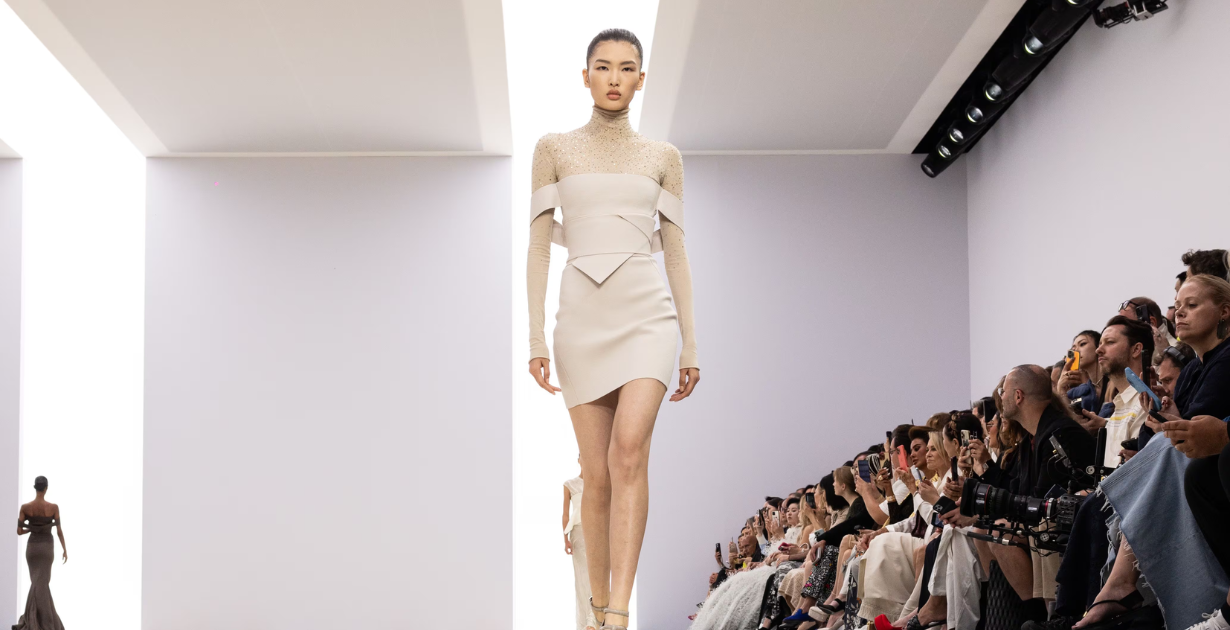Fashion Models to Receive Compensation to Use their AI Image
Models with the H & M Fashion Retailer will be compensated for the use of their digital doubles generated through the use of Artificial Intelligence
H & M informed the outlet that models would retain ownership of their digital replicas and their use by the company and other brands for marketing purposes.
It was further stated that the images are likely to be utilized in social media postings at the outset, with watermarks that indicate their AI usage.
In order to ensure that audiences are informed, platforms such as Instagram and TikTok mandate that users disclose the use of AI in order to produce realistic content. This information is clearly labeled.
H & M had earlier stated that it will employ AI doppelgangers in certain social media posts and marketing campaigns in lieu of humans, provided that models grant permission.
“We are enthusiastic about the prospect of utilizing new technology to enhance the presentation of our fashion while maintaining our dedication to personal style,” stated Jörgen Andersson, the company’s chief creative officer, in a statement.
According to H & M, the compensation would be done in a manner similar to the current arrangements, which involve them being paid for the use of their images based on the rates agreed upon by their agent.
It is “vital” for fashion models to have complete control over their likeness and receive reasonable compensation for its use, according to Paul W Fleming, the general secretary of the trade union Equity, which represents fashion models in the UK.
“We are in favor of brands that appear to be moving in this direction; however, this must be substantiated by the widespread implementation of AI protections in union agreements and legislation that safeguards workers’ rights,” he stated to the BBC.
In response to the proliferation of AI-generated content and initiatives online, Equity, like numerous other trade unions that represent performers and creatives, has been advocating for enhanced worker protections.
Mr. Fleming further stated, “Unfortunately, the current landscape has little to no such protections,” referring to the widespread, unlawful copying of their model members’ work by major tech and AI developers without their consent.
Hugo Boss and Levi Strauss & Co are among the fashion companies that have experimented with the use of generative AI for product images.
In 2023, Levi’s, the denim behemoth, announced that it would conduct a trial of AI-generated model images as a means of “enhancing diversity.”
It clarified that it would not reduce the number of live photoshoots with models in response to criticism.
In response to straightforward text queries, generative AI can generate photorealistic images at a rapid pace and at a low cost.
As a result, numerous industries and organizations have adopted it as a method of satisfying their content requirements, including marketing materials.
However, its utilization by fashion and cosmetics firms has elicited a backlash amid apprehensions that its expanded adoption could significantly diminish employment prospects.
Some individuals are concerned that it may result in a decrease in the workload of production staff, which includes photographers, stylists, make-up artists, and lighting assistants, during photoshoots.
The organization asserts that it is collaborating with the Swedish technology company Uncut to enhance the AI likenesses of the model.
Uncut asserts on its website that it is “assisting major brands in bidding farewell to antiquated production methodologies” and streamlining the process of content creation to make it “more cost-effective, intelligent, and straightforward.”
Nevertheless, for certain models, the presence of a “AI twin” enables them to assume additional responsibilities and circumvent the need for travel.
In an H&M image that was shared with Business of Fashion, model Mathilda Gvarliani stated, “She’s like me, but without the jet lag.”
However, Mr. Fleming stated to the BBC that models are still “being compelled to sign unjust contracts that deny them their rights to ownership and fair compensation.”
“When all of our likenesses are incredibly personal to each of us, this is an abhorrent violation,” he continued.
news via inbox
Get the latest updates delivered straight to your inbox. Subscribe now!




